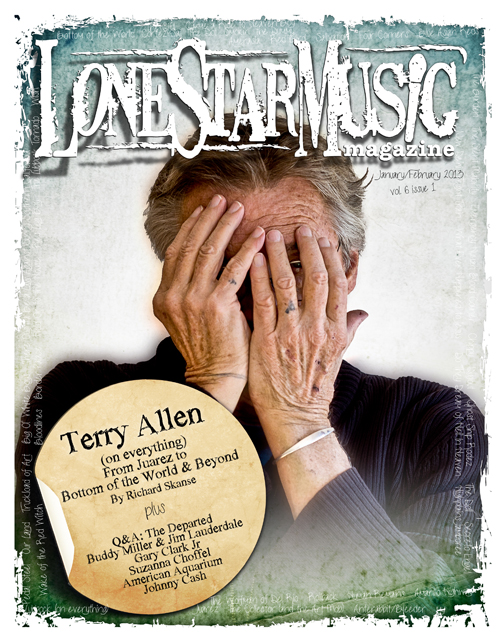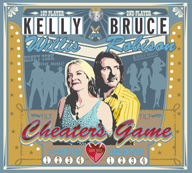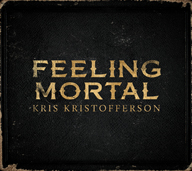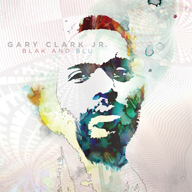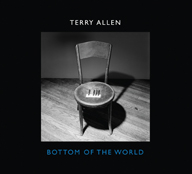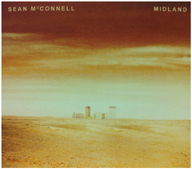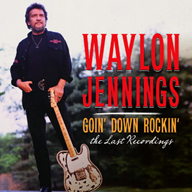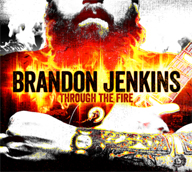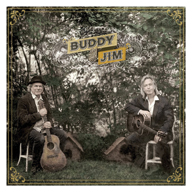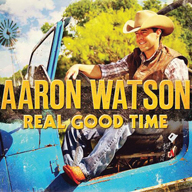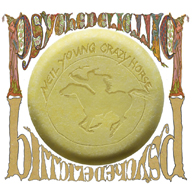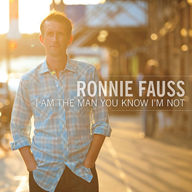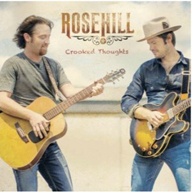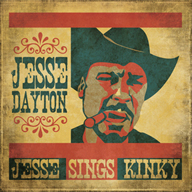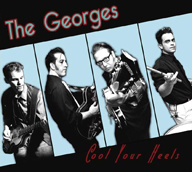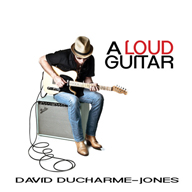

|
Terry Allen (on Everything) |
|
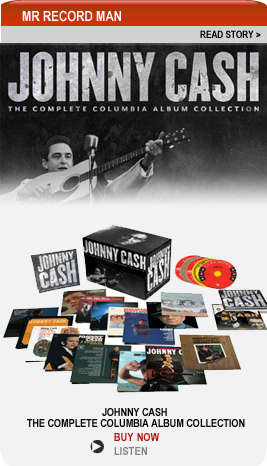

Bruce Robison and Kelly Willis’ creative paths have been intertwined for years, but save for a holiday EP they’ve never really done the classic country him/her record. Five years after her last solo album and four years after his, the husband/wife duo have finally come around to making an album together, but it’s actually not a classic country him/her record — at least not one following the old George Jones and Tammy Wynette playbook, with a vintage-sounding exchange of lines. Instead, Cheater’s Game achieves the same casual comfort of Willis’ and Robison’s solo albums, with songs largely steered by one voice and colored by their harmonies, which continue to nestle together with ease and aching beauty. The song selection, as is typically the case with these two, is impeccable, with smart covers from songwriters like Hayes Carll (“Long Way Home” is an album standout), Don Williams (“We’re All the Way”), Dave Alvin (“Border Radio”) and Robert Earl Keen (“No Kinda Dancer”). Robison wrote more than half of the tunes, including the title track (a co-write with Savannah Welch and Liz Foster that the Trishas featured on their 2012 album, High, Wide and Handsome). His originals are, for the most part, steeped in the kind of longing and boozing that suits their voices. “After all,” he wrote and she sings on the title track, “rock bottom’s not too far down.” — ANDREW DANSBY
|
|
Kris Kristofferson’s autumnal renaissance officially takes flight now. The legendary songwriter’s new Feeling Mortal — a compelling meditation equal measures heart (“Mama Stewart”) and hope (“Bread for the Body”) — doubles down on recent efforts with stunning results. Read the album title again for a perfect thematic summation. “Here today and gone tomorrow is the way it’s gotta be/With an empty blue horizon for as far as I can see,” Kristofferson sings early on. “God almighty, here I am; am I where I ought to be?/I’ve begun to soon descend like the sun into the sea.” The 76-year-old frequently looks back fondly on a life well lived and offers compelling messages throughout. In a nutshell: Embrace your gratitude, enjoy every moment, and study shadows any chance you get.
|
|
GARY CLARK JR. |
When proud Austinites tell you that no bluesman has faced the fame and anticipation that hometown hero Gary Clark Jr. is facing since Stevie Ray Vaughan, it’s the honest truth. So when the horn-blowing jump-machine “Ain’t Messin ’Round” opens up Blak and Blu, Clark’s full-length major-label debut, fans of the young guitarist’s signature raw blues may find irony in the title. But that doesn’t mean the Blu is gone: a cleaned-up “Bright Lights” (a song first featured on Clark’s buzz-stoking 2011 EP), a harrowing, 10-minute “When My Train Pulls In,” and new-comer “Numb” each showcase the maddest guitar sound since the devil used to hang out at the crossroads. But the real surprise here is Clark’s deft blend of R&B and pop throughout the album. It’s a risky move on Clark’s part, but as true to the melting pot of sound heard on Austin’s streets as his blues are true to his Antone’s roots. And with Mike Elizondo (Fiona Apple, Dr. Dre) and Rob Cavallo (Green Day, Goo Goo Dolls) co-producing, songs like “The Life” (a personal jigsaw tale that is catchy as hell), “Glitter Ain’t Gold (Jumpin’ for Nothin’)” (produced as though to drown out Clark entirely), and the powerhouse title track just seem to fall into place. About the only thing that doesn’t — at least in this context — is the stomping closer, “Next Door Neighbor Blues,” which, while electrifying the ghost of Mississippi Delta’s past, still seems too real or too crude to affiliate with Black and Blu. A more appropriate closer would have been the Jimi Hendrix and Little Johnny Taylor cross-breed “Third Stone from the Sun/If You Love Me Like You Say,” which somehow draws everything back together into a sound that is both articulate and nasty, like wings being sheared from the spine — a sound that can only be described as Gary Clark Jr. — LITTLE WALTER |
TERRY ALLEN
|
Although he’s hardly been sitting idle in the interim, having produced two major multi-media art and theater works (Dugout and Ghost Ship Rodez), it’s been 13 years since the last time Terry Allen focused his formidable creative energies toward a brand new album of songs. That’s a long time to leave fans waiting for a fix, but all is forgiven from the first notes of Bottom of the World, the Lubbock-reared agent provocateur’s 11th album and first of the 21st century. Like 1999’s Salivation (and a handful of his other albums) before it, it’s visited by the restless spirit of his 1975 debut, Juarez. The album opens with the bittersweet sigh of “Four Corners,” which sounds more haunted than ever courtesy of co-producer Lloyd Maines’ keening pedal steel. But Bottom of the World harkens back to Allen’s first record not just by revisiting one of its songs, but through its minimalist arrangements. That’s not to say the album sounds raw or under produced; quite the contrary, it’s steeped in atmosphere, filling any space it’s played in with an indigo blue, twilit ambiance and the kind of flickering shadows that keep you looking back over your shoulder. But in stark contrast to the full-tilt swagger of his albums with the Panhandle Mystery Band, the ensemble here is scaled back to just Allen (vocals, keyboards), Maines (guitar), Richard Bowden (viola, mandolin), Brian Standefer (cello), and Allen’s son and daughter-in-law, Bukka (accordion, B3) and Sally Allen (vocals). As such, there’s nothing on Bottom of the World with quite the gonzo, honky-tonk punch of past stompers like “The Heart of California” and “The Lubbock Tornado,” but the trade-off is an intimacy that underscores the enigmatic mystery, wit, and heart (yes, heart) of Allen’s lyrics. In “Queenie’s Song,” a true-story account that co-writer Guy Clark recorded on his own The Dark album a decade ago, Allen vows vengeance on the son-of-a-bitch that killed his dog, but the aching sincerity in lines like “New Year’s Day in Santa Fe broke me when it broke cold” betray a sense of inconsolable loss that resonates stronger than his anger. “Covenant,” dedicated to his wife Jo Harvey Allen, is a concise (just over two minutes) testament to undying friendship and love — and the sweetest song Allen’s recorded since, well, the last one he dedicated to his other half, Lubbock (on everything)’s “The Thirty Years Waltz.” Rest assured though, this ain’t no album full of love songs: “Emergency Human Blood Courier” is as fraught with tension as a Mexican standoff, and “The Gift” examines the tragic legacy of notorious Wall Street fraud Bernard Madoff — as paid by the felon’s oldest son. And of course there’s wry humor here, too: Leave it to the writer of “Gimme a Ride to Heaven” to not only ponder spiritual questions like “Do They Dream of Hell in Heaven,” but also muse, in “Bottom of the World,” “Read some awful things about Cuarnavaca/Sounds like the place to go.” Put it all together and you’ve got a quintessential Terry Allen record. They may not come around as often as they used to, but when they do, they give you everything he’s got. — RICHARD SKANSE |
SEAN McCONNELL
|
I first heard about Sean McConnell in a Radio Free Texas chat with Wade Bowen. Bowen marveled at what an amazing songwriter McConnell was. Days later, I was in the basement of a Milledgeville, Ga., coffee house listening to McConnell’s three-piece band. Years later, McConnell is on the Texas and Americana map in large bold print, even recently filling Gruene Hall on his acoustic tour. He has turned years in a number of places, including Boston, Atlanta, and greater Nashville, but now he’s settled into home, fatherhood, and family, and his new album, Midland, plays a refined retrospective. He rocks on “Save Our Soul,” croons on “Suppertime,” and even goes all-Ben-Folds-y on the song “Kiss.” “Old Brown Shoes” feels like a very personal tune that the average listener may write off (then again, it certainly will resonate deeply for others), but stompers like “Different Kind of Blue” and “Novocaine” make that an afterthought to those types. McConnell has clearly, cliché be damned, matured, but he’s still every bit as good as he was way back when Bowen was singing his praises on the radio. Maybe I’m just the eternal optimist, but I have trouble finding much negative to “critique” on this effort. My only concern then is this: How’s McConnell going to top this album next time out? — CODY OXLEY |
DWIGHT YOAKAM
|
Album reviews are too often framed by the “so-and-so’s best album since …” boilerplate. Such is a difficult construct to apply to Dwight Yoakam, because this purveyor of his own brand of slyly oxymoronic progressive/retro country music hasn’t really laid an egg since introducing himself with Guitars, Cadillacs, Etc. more than a quarter century ago. 3 Pears is notable as his first set of original songs in seven years, but its predecessor, Blame the Vain, was a fairly crisp and spirited album. So I’ll not saddle 3 Pears as the “best since” anything, but it seems safe to say it’s his most beguiling album since 1995’s masterwork Gone — evidenced most superficially by the lyrical use of the word “giraffe,” undoubtedly a first for Yoakam and perhaps all of country music. But there are also instrumental touches that tie 3 Pears back to Gone: the Bacharachian brass on “Never Alright,” the girl group sha-la-las and Motown bass on “Take Hold of My Hand,” and the Everly Bros.-meets-Link Wray attack of the album’s stickiest track, “A Heart Like Mine.” And to sate the true traditionalists, there’s the straightforward, buzz-saw honky-tonk of “Dim Lights, Thick Smoke,” a fuzzed-out take on a tune penned by the mid-century string-wizard Joe Maphis with his wife, Rose Lee. |
WAYLON JENNINGS |
Unlike most posthumous collections of studio-enhanced tracks by departed artists, Goin’ Down Rockin’ honors and enhances the memory of the artist in question, rather than merely exploiting it. Consisting of tracks that Waylon Jennings cut with producer/pedal steel player Robby Turner prior to his death in 2002, and subsequently fleshed out by Turner and various Jennings sidemen, it finds Jennings sounding worn but not weary, and consistently impassioned despite his declining health. The 12 self-penned tunes — eight never-before-heard songs, plus four remakes of previously released numbers — find Jennings alternately reflective and defiant, and singing in a voice that occasionally sounds weakened yet never less than deeply engaged. Highlights include the title track, an appropriately unapologetic collaboration with fellow iconoclast Tony Joe White; “If My Harley was Runnin’,” a raucously touching riff on aging; and the thoughtful “Ways of the World,” which Turner outfits with an epic arrangement that’s out of character but oddly appropriate. The album’s emotional centerpiece is “I Do Believe,” a meditation on spirituality and mortality that’s startling in its wisdom and forthrightness. Goin’ Down Rockin’ isn’t quite essential Waylon. But it’s superior to any of the official albums that Jennings released during his last decade, and it demonstrates that he still had plenty to say when he left us at the age of 64. As such, it’s a worthy addition to his storied catalogue. — SCOTT SCHINDER |
BRANDON JENKINS
|
Brandon Jenkins has perhaps the Texas/Red Dirt scene’s greatest instrument. No, not his impressively burly beard, but his resonate, full-toned vocals, which are arguably some of the most distinctive in the aforementioned scene. Jenkins could easily break out a group of muscular, bluesy tunes such as “Big Mama’s Kitchen” or “Faster Than a Stone” and it would likely be a worthy album to listen to. But when one presses play on his new album, Through the Fire, only to hear harmonica leading a strummed acoustic guitar through the title track, a pensive and thoughtful — but no less masculine — Jenkins reveals himself. Not that such a vulnerability is a new thing from him, but on this record the introspection blends better with the bold than on anything else he’s ever done. That much is made clear by the time the second track rolls. “Burn Down the Roadhouse” isn’t a balls-out rocker, but it is a swaggering, swampy, sweat-drenched growler of a number that so many of Red Dirt’s young guns can only hope to convincingly record one day. In fact, that can be said for pretty much all of Through the Fire. — KELLY DEARMORE
|
BUDDY MILLER AND JIM LAUDERDALE
|
With a recording schedule of three entire days, Buddy Miller and Jim Lauderdale could have gotten away with recording any of a number of tunes they’d already written or co-written. But for their first album of duets, they created several new ones — and chose others that deliver exactly the kind of charms you’d expect from two of the most versatile artists in the Americana realm. “That’s Not Even Why I Love You,” on which Miller’s wife, Julie, contributed, is a standout; Miller and Lauderdale gently wrap their voices around this gorgeous melody, and one can almost visualize Buddy singing these loving lyrics to Julie in their comfy home studio. “Looking for a Heartache Like You,” their other three-way collaboration, just exudes cool. Julie’s solo composition, the ballad “It Hurts Me,” provides a wonderful harmony workout — Buddy goes low while Jim hangs the high notes. It’s a perfect blend. “I Lost My Job of Loving You” takes a snaky, low-register tone; “The Train that Carried My Gal from Town” mixes sassy electric riffs with Stuart Duncan’s lonely-locomotive fiddle. “Forever and a Day” is Everly-sweet, and “I Want to Do Everything for You” sounds downright sexy. Then they go all Elvis-like on the closing “The Wobble,” a retro-raveup with Patterson Barrett tickling those vintage keyboards. Hey guys, don’t wait too long for the followup, huh? — LYNNE MARGOLIS |
AARON WATSON
|
Aaron Watson’s built an A-list Texas country career out of knowing just how to rock the honky-tonk without going too far in either sonic direction. Slick yet sincere, Watson will likely continue to be a strong regional radio presence even though his latest album, Real Good Time, is a perplexing mixed bag affair. On the one hand, Watson doesn’t mess with his musical formula in the least here, and based on that, most long-time fans will probably be pleased with the record. What negatively sets this album apart, though, are the mind-numbing collaborations and reworked popular tunes from his back catalog, which come off as unnecessarily desperate decisions for a performer of Watson’s established stature. Granted, thanks to most of the originals being done in Watson’s signature revved-up, sawdust-shuffling style, there’s still keepers here, most notably the touching tribute to Lane Frost, “July in Cheyenne (Song for Lane’s Momma).” But retreads such as “Reckless” and his duet with Willie Nelson, “Honky Tonk Kid,” are pointless inclusions that bring nothing new to the table. “Hey Y’all” and the joint tune with Kevin Fowler and John Anderson, “Duck Blind,” are embarrassments in their desire to give-in to the lowest country denominators. And the best that can be said about Watson’s collaboration with Josh Abbott and Pat Green, “Texas Boys,” is that that particular generic ode to bad-boy behavior was a far better song the first time it was recorded — back in 1992 by Garth Brooks and Chris LeDoux, under the title “Whatcha Gonna Do With a Cowboy.” Such is ironic, given that Watson and Justin McBride also offer up an inoffensive take on “Cadillac Cowboy,” which LeDoux also recorded more convincingly. All in all, Real Good Time makes for a really odd listening experience. The simple fact is, the man can do better. — KELLY DEARMORE |
JUNIOR BROWN
|
Junior Brown has been working his Ernest-Tubb-on-acid schtick for more than 20 years now, and somehow it still works. And why shouldn’t it? The guy is a world-class instrumentalist who doesn’t take himself too seriously, and he’s got a knack for composing songs about contemporary life that sound like they were written 50 years ago. Volume 10 is a six-song EP that boils his essence down to a fun-sized, 20-minute package. “Hang Up and Drive” is the key track here, a classic country tune that deals with women who drive while on their cell phones. That’s right, women; apparently Junior doesn’t think dudes talking on their cell phones cause problems, just the ladies. That admittedly misogynistic bum note aside, though, the song is quick, clever and undeniably fun — and jam-packed with virtuoso picking. In fact, all the songs here feature jaw-dropping guitar playing. The other four songs with lyrics don’t quite connect like “Hang Up and Drive,” but the set’s only instrumental and final track, “Almost to Tulsa,” is a ripping jazzy number highlighting Brown’s truly awe-inspiring instrumental chops. Simply put, if you like Junior, get this. It’s got everything you want to hear from him. And if you’ve never heard him, this is as good a place to start as any of his records.
— GREG ELLIS |
NEIL YOUNG & CRAZY HORSE
|
To hear Neil Young described as a “legacy” or “classic rock” act is weird, because few artists wearing those tags are making new music at all, much less taking chances or revitalizing tried-and-true styles. And few sound as dynamic today as they did when they started out. Young, however, has never phoned it in, even when he took seemingly inscrutable detours. And he’s shared some of his finest moments of ragged glory with Crazy Horse, who saddled up again for this double-album opus, delivered hot on the heels of Young’s other 2012 release, Americana. But whereas Americana found him putting the Crazy Horse stamp on age-old folk tunes, Psychedelic Pill is a heaping helping of new Neil in peak, uncompromising form. Even the 27-minute-plus “Driftin’ Back,” which finds a delicate, contemplative mode before drifting into electric meandering, isn’t aimless or boring. Its sonic patterns actually hypnotize before his lyrics (“gonna get me a hip-hop haircut”) jolt you back. There’s more noodling on “Ramada Inn,” but these guitar explorations are lullaby-like. “For the Love of Man,” almost a hymn, is even more soothing — and a great lead-in to the harmony-laden epic, “Walk Like A Giant,” full of chunka-chunka chords and the crunching, scraping sound of dinosaurs lumbering across a changing landscape. With the autobiographical tunes “Born in Ontario” and “Twisted Road” — the latter simultaneously describing Young’s love affair with music and the experience so many have had listening to his — we’re reminded once again why Young still walks like a giant in the pantheon of rock gods. |
RONNIE FAUSS
|
Although he’s been kicking around the Dallas area for a few years now and has a handful of EPs under his belt, Ronnie Fauss is a relative newcomer to the wider Texas/Americana scene. But on the evidence of his full-length debut, I Am the Man You Know I’m Not, he merits a spot on any shortlist of rising troubadours worth paying serious attention to. Hell, he earns that with “This Year” alone. It’s the kind of family snapshot guys like Robert Earl Keen, Slaid Cleaves, and Hayes Carll all excel at, and it’s on the level of their best — with a three-sheets-to-the-wind chorus that’s spiked with just enough cautious optimism to take the edge off of a New Year’s Day hangover: “I’ve never had anything quite like the year/That I know I will have this year.” There’s also just enough grit in his voice to lend a credible blue-collar edge to his city-boy wit (“I’m a Democrat who rides around in a big old SUV,” he mocks himself in the terrific “Pistols in the Air”) without coming off as the least bit contrived. Stylistically, he’s as convincing delivering sad-eyed honky-tonk laments (“I Can’t Remember (What You Can’t Forget)”) and Gram Parsons covers (a sterling “Sin City,” featuring lovely female accompaniment by Lilly Hiatt) as he is kicking his way through up-tempo Americana (“A Pretty Nice Night for Houston.”) That last tune is a bit of a dead-ringer for another Dallas maverick, Jack Ingram — as in the old-school Ingram from his Beat-Up Ford Band days, not the latter-day mainstream contender. About the only misstep on the whole album is the opening “The Night Before the War,” which undercuts a killer, bittersweet verse and chorus melody with too much gratuitous, spit-shined fiddle. That kinda stuff might getcha on the Texas Music Chart, but Fauss is clearly better than that — no matter what he insists with that album title. — RICHARD SKANSE |
ROSEHILL
|
Rosehill, the Houston-based duo comprised of Mitch McBain and Blake Myers, are developing a promising trend that establishes them as an act that reliably produces solid records. Granted, reliable and solid may not be sexy, but sexy, as it does in a romantic relationship, often fades quickly. Building upon their attention-grabbing debut, White Lines and Stars, McBain and Myers stick relatively close to the formula of tight harmonies and dramatic flourishes that manage to keep most songs on the agreeable side of melodrama. “The Bible and the Gun” is a fine example of a song that grabs the cochlea and insists you listen closely instead of merely waiting to sing-along with the irresistibly hooky chorus. The polished production of Jay Clementi certainly compliments the rock-driven tunes as the occasional pedal steel cries just enough to provide the album with country flair; a raw, rugged album, this ain’t. Nor is Crooked Thoughts a shoot-out-the lights party album; it’s much more of a slow sipping affair. Such a distinction is an important one, as only a collection of songs that have been thoughtfully written can make someone put down the shot glass and Patron for a highball and bottle of the brown stuff. — KELLY DEARMORE |
JESSE DAYTON
|
Tribute records are always something of a dicey prospect. Can the interpreter transcend the original? A lot of times, that comes down to the listener’s relationship to both the interpreter and the interpreted. For me, Kinky Friedman is a larger-than-life personality whose music is one facet of that but never the most important. On his ninth solo album, Jesse Sings Kinky, Jesse Dayton has the unenviable task of making me forget Kinky the icon and concentrate on Kinky the songwriter. The pros and cons of this approach can be found on his covers here of two of Friedman’s best songs, “Rapid City, South Dakota” and “Sold American.” Dayton transforms the former into a chugging Southeast Texas honky-tonk gem but misses the nuances of the latter completely by taking it at too fast a tempo. He also seems oddly detached from the lyrics. Far more successful is “Twirl,” which Dayton reimagines as a Tex-Mex tune — an inspired move that broadens the scope of the tune about escaping a small town: It ain’t just for white girls anymore. Overall though, Dayton seems determined to make us appreciate what a “serious” songwriter Friedman is, but re-contextualizing him as a peer of Townes or Billy Joe misses a very significant aspect of what makes Kinky kinky. Where is “Ride ’Em Jewboy,” Friedman’s magnum opus that somehow manages to successfully compare the Holocaust to a cattle drive? If you want us to respect Kinky as a songwriter, why omit his greatest song? Kinky’s an unabashed jokester, so how bout a chuckle or two? Granted, the singing and playing is as impeccable throughout as you would expect from a veteran like Dayton. And no doubt the album will serve its purpose in introducing a whole new audience to Kinky the songwriter. But by leaving the Kinkster’s lighter side by the wayside, this tribute is more of a well-drawn sketch of Friedman rather than the full color portrait he deserves. — GREG ELLIS |
THE GEORGES
|
Rockabilly ain’t new, but in the right hands neither is it broke or worn out. Some things, done well, can be classic and timeless. For proof, one need look no further than San Marcos’ the Georges, who have developed a fervid following over the last couple of years with their consistently killer live shows throughout the Hill Country (especially in New Braunfels). Their music is rockabilly with a twist: all burnished bop, nifty hooks, clean-cut harmonies and bad-boy swagger. Sure, they evoke the Beatles and conjure Elvis, but this is way more than just a retro thing. They’ve got something going on, and Cool Your Heels confirms that. It consolidates their live appeal and raises it. Fourteen tracks, all originals, and not a weak link or hint of filler in the bunch — just song after song of pure pep, pop and poise. Yes, the Georges have arrived. It’s a bold claim, but if you’re looking for some good-time, dance-friendly, lip-quivering an’ hip-shakin’ rockabilly boogie, there might be bigger, brasher or bolder combos out there, but — and this is hand on heart stuff here — there really ain’t none better. — ROSS FORTUNE |
DAVID DUCHARME-JONES
|
David Ducharme-Jones plays a mighty fine loud guitar. But it’s much more than the decibels emanating from his Marshall stack that make A Loud Guitar such a sonic treat to the ears. Ducharme-Jones showcases a pro’s pro prowess up and down the fretboard as well as a sumptious breadth of styles and influences. Clearly, he graduated with honors from the College of Musical Knowledge — majoring in Diverse Originals and minoring in Somewhat Obscure Covers. Among the seven of the former, standouts include “Left Undone,” a turn-it-up-loud answer song of sorts to the Stones’ long ago suggestion that time would always be on our side. By singing along with Ducharme-Jones (and just try not to), you’re buying into the suggestion that the sands are a-fallin’, so get your ass a-movin’ and stop bein’ so freakin’ responsible. And if Connie Briton doesn’t find a way to put “Welcome to Nashville” over the opening credits of her new ABC hit, well, her Friday night lights aren’t nearly as bright as I thought they were. There are lyrical allusions to everyone from Kris Kristofferson, the captain of the Titanic, David Allan Coe, Harlan Howard and a host of other Nashville cats in this roadhouse-tripping rocker about a band’s hard-luck attempt to get noticed in Music City (“I told the hotel clerk about my band’s show in town tonight, he said ‘Lemme guess, John, Paul, George and Ringo, am I right?”) Ducharme-Jones also reaches deep into his peach crate of aging vinyl for a pair of inspired covers: the spaciously rendered Traffic classic, “The Low Spark of High Heeled Boys,” and a wistful “I Am a Diamond (Anyway)” by fellow Tex-Iowan BeJae Fleming. A man who’s made music with — and for — countless others over the years, Ducharme-Jones steps out of the shadows of his amp stack with A Loud Guitar that both screams and ever-so-gently cries out to be heard. — D.C. BLOOM
|
|
|
